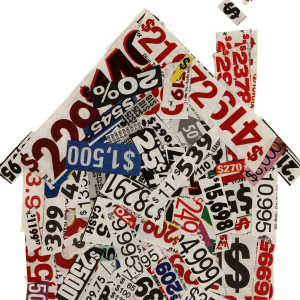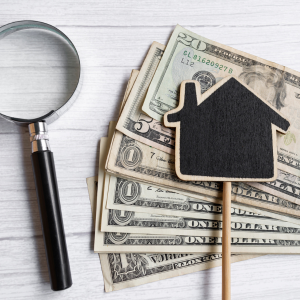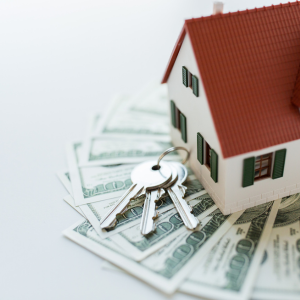
The Complete Guide to the Costs of Selling a House
In Illinois, selling a home typically costs around 11.75% of the sale price. For example, if you sell a home for $350,000, you can expect to pay approximately $41,116 in total selling costs. A $500,000 home may cost about $58,737 to sell, while a $750,000 home could come with selling expenses around $88,106.
When selling a home in Illinois, it is essential to comprehend the various costs involved beyond merely real estate expert commissions. Sellers must consider closing costs, which generally encompass attorney fees, title insurance, and transfer taxes.
In Illinois, these expenses may differ based on the specific county or municipality in which the property is situated. Furthermore, sellers should take into account expenses related to pre-sale home inspections or repairs to guarantee that the property aligns with buyer expectations and successfully passes any required evaluations.
Marketing expenses are an important factor; staging your home and investing in high-quality photography can greatly influence the speed of your home sale and the final price achieved. Additionally, if you currently have a mortgage on your property, settling that balance will be a factor in calculating your net proceeds from the sale.
Understanding these components helps create a clear picture of the true costs associated with selling a home in Illinois. To learn more about what to expect, here’s how A Team Real Estate Solutions can help.
Understanding House Selling Costs in Illinois

Understanding the various costs associated with selling a home in Illinois is critical for homeowners who want to maximize their profits. Real estate agents typically charge a commission of 5% to 6% of the sale price, which is one of the most significant costs.
Sellers should also consider closing costs, which can include title insurance, transfer taxes, and attorney fees. Transfer taxes in Illinois are imposed at both the state and local levels, and they vary by municipality.
Furthermore, sellers may need to invest in pre-sale home repairs or staging to boost their property’s appeal and market value. Homeowners should be aware of potential capital gains taxes if their property’s value significantly increases.
Understanding these expenses allows sellers to plan and budget for a successful home sale in the competitive Illinois real estate market.
Breakdown of Realtor Fees When Selling Your Home
When selling your home in Illinois, it’s important to know how realtor fees are broken down so you can understand the full cost. Most of the time, real estate professionals get paid a commission of 5% to 6% of the final sale price of the home.
This fee is usually split between the buyer’s agent and the seller’s agent, with each getting about half. In Illinois, as in many other states, these commissions can change a little based on things like the local market, the agents’ specific services, and any deals that were made.
In addition to the standard commission, sellers may have to pay for extra costs related to marketing, such as professional photography, staging services, or premium online listings that are meant to make the property more visible and appealing. Knowing about these costs ahead of time can help sellers make smart choices about how to price their home to get the most money back and stay within their budget.
Typical Closing Costs for Illinois Home Sellers
There are many closing costs that go along with selling a home in Illinois. Sellers need to know these costs so they can figure out how much money their sale will cost them. Real estate expert commissions, which usually range from 5% to 6% of the sale price, are the biggest closing costs for people selling homes in Illinois.
To avoid arguments about who owns the property, sellers must pay for title insurance, which can vary depending on the sale price and location. Transfer taxes imposed by both state and local governments may add to the cost. In Illinois, this is usually calculated at $1 per $1000 of the sale price at the state level, but there may also be extra municipal taxes.
It is common for both parties in an Illinois real estate deal to hire lawyers to make sure they follow state laws and protect their interests. This means that sellers may also have to pay for legal fees. Other costs may include paying off liens and mortgages, and paying property taxes on a prorated basis until closing.
Homeowners in Illinois should be aware of the typical closing costs involved in a sale to effectively plan their budgets and prevent unexpected expenses. If you have questions or need guidance, feel free to reach out to A Team Real Estate Solutions.
How to Calculate the Cost of Selling a House
In order to obtain an accurate assessment of their financial obligations, homeowners in Illinois should incorporate numerous critical expenses into the calculation of the cost of selling a home. Typically, real estate agent commissions account for 5% to 6% of the sale price of a home.

In addition to agent fees, sellers are required to account for closing costs, including title insurance, escrow fees, and attorney fees. Additionally, homeowners may be required to fund repairs or enhancements to enhance the property’s marketability and satisfy buyer expectations.
Staging and professional photography may incur additional expenses in order to attract prospective purchasers. Local government transfer taxes and any outstanding mortgage balances that must be paid off at the time of sale should not be disregarded by sellers.
By meticulously evaluating these diverse expenses, homeowners can develop a more comprehensive understanding of the actual cost of selling their Illinois home and make the necessary preparations to ensure a seamless transaction.
Legal Fees and Documentation Costs in Home Sales
When selling your home in Illinois, it is essential to recognize that the true cost encompasses more than just the sale price; legal fees and documentation expenses are significant factors to consider. In Illinois, sellers often face a range of legal expenses, including attorney fees that are essential for ensuring compliance with all contracts and agreements with state laws.
A knowledgeable real estate attorney will assist you with complex paperwork, including the purchase agreement and title documents, which are crucial for a seamless transaction. Furthermore, sellers should be ready for expenses related to the preparation of the deed and other essential legal documents.
Title insurance represents an additional expense to evaluate and safeguard both parties from prospective claims related to the property. During the closing process, notary fees may be incurred to verify signatures on essential documents.
Comprehending these legal obligations and related expenses in advance enables sellers to plan their budget efficiently and prevent unforeseen financial challenges throughout the home-selling process in Illinois.
Appraisal and Inspection Expenses Before Selling
When getting ready to sell your home in Illinois, it’s important to know how much the appraisal and inspection will cost so you can get an accurate idea of how much it will cost to sell. Most lenders need an appraisal to find out the fair market value of your property. This makes sure that the asking price is in line with what the market is like right now.
The price of a professional appraisal can change, but it usually costs between $300 and $500. A thorough home inspection can also find problems that could affect the sale or make buyers want to renegotiate.
Depending on the age and size of your home, inspection fees can be anywhere from $200 to $600. These costs up front are important for sellers who want to avoid surprises during negotiations and make the transaction go more smoothly.
Getting both an appraisal and an inspection not only helps you set a fair price, but it also makes things clear, which can help you build trust with potential buyers in Illinois’s competitive real estate market.
Should You Pay for Pre-sale Home Repairs?
When considering selling your home in Illinois, you should weigh the benefits of paying for pre-sale home repairs. Investing in necessary repairs can increase your home’s appeal to potential buyers, potentially resulting in a faster sale at a higher price.
In the competitive Illinois real estate market, well-maintained homes attract more interest from prospective buyers. Sellers can increase the value of their property by addressing issues such as leaky roofs, outdated electrical systems, or cosmetic flaws such as peeling paint and worn flooring, avoiding price negotiations driven by repair needs discovered during inspections.
However, it is critical to consider the cost-effectiveness of these repairs in light of the overall selling strategy. Consulting with an experienced real estate professional who is familiar with local market trends in Illinois can provide valuable insights into which improvements provide the best return on investment, thereby influencing the true cost of selling your home.
Staging Costs: Preparing Your House for Sale
One of the most important costs that homeowners in Illinois often forget about when selling their homes is staging. If you stage your house well, it will be much more appealing to potential buyers, which could affect the sale price.
In a competitive real estate market like Illinois, where first impressions are important, hiring a professional to stage your home can make a big difference. This process includes rearranging furniture, getting rid of clutter, and sometimes even renting modern furniture to show off the best parts of the home.
These costs can change based on the size of the property and how much staging is needed, but spending money on this can help the property sell faster and get more interest from buyers. Illinois real estate experts always say that homes that are well-staged sell faster and for better prices than homes that aren’t staged.
To maximize your profit when selling your home in Illinois, it’s important to understand how staging costs fit into your overall selling strategy. This is especially true if you’re considering working with cash home buyers in Illinois and other cities in Illinois.
Impact of Market Conditions on Selling Costs
Market conditions greatly influence the true cost of selling your home in Illinois. When the real estate market is hot, with high demand and limited supply, sellers may benefit from shorter time on the market and possibly higher offers, which can help offset some selling costs.
In a buyer’s market, where supply outweighs demand, homes may sit on the market for longer periods of time without attracting competitive bids, resulting in increased marketing expenses and potential price reductions. Fluctuating interest rates can impact buyer affordability and sellers’ need to invest in repairs or staging to increase property value.
Economic factors such as employment rates and local economic growth influence housing demand and pricing dynamics, ultimately affecting closing costs and potential buyer incentives. Understanding these factors is critical for homeowners looking to reduce their costs when selling in Illinois’ diverse real estate market.
Diy vs Professional Services: Cost-effectiveness in Home Sales
When evaluating the cost-effectiveness of selling your home in Illinois, it is essential to assess the choices between DIY approaches and expert services. Choosing a DIY approach may appear appealing because of the possible savings on real estate agent commissions, which generally fall between 5% and 6% of the home’s sale price.
However, undertaking this independently entails several costs, including marketing expenses, photography, listing fees, and potentially engaging an attorney to ensure that all legal documentation is properly managed. Conversely, utilizing expert services can greatly enhance the efficiency of the process.
Real estate experts offer valuable knowledge in pricing strategy, market analysis, negotiation techniques, and provide access to an extensive network of potential buyers. They frequently utilize sophisticated marketing tools and possess expertise in staging homes to draw in competitive offers.
Although services entail initial costs and commission fees at closing, they may result in a quicker sale and a higher selling price that can compensate for these expenses. Grasping these dynamics is essential when determining if DIY efforts or expert assistance better suit your financial objectives and timeline for selling your home in Illinois.
Strategies to Minimize Expenses When Selling a House
When selling a home in Illinois, homeowners can use a variety of strategies to reduce costs and increase profits. One effective strategy is to conduct a thorough market analysis to determine a competitive yet appealing listing price, which can help reduce the property’s time on the market and lower carrying costs.
Furthermore, focusing on low-cost home improvements can increase curb appeal without breaking the bank; simple upgrades such as new paint or landscaping can make a big difference. Sellers should also consider negotiating commission rates with real estate professionals or even looking into flat-fee services to reduce agent fees.
Furthermore, staging the home with existing furniture rather than renting expensive pieces can save money while presenting the property in the best possible light. Another strategy is to handle minor repairs and maintenance tasks yourself rather than hiring professionals, thereby lowering labor costs.
Sellers can effectively reach potential buyers without incurring significant costs by being strategic in their marketing efforts, such as leveraging social media and online platforms for advertising rather than costly print ads. Implementing these strategies allows Illinois homeowners to keep more equity from their sale by carefully managing and lowering the overall costs of selling their home.
Seasonal Variations in Selling Costs: Timing Your Sale
When calculating the true cost of selling your home in Illinois, it’s critical to understand how seasonal fluctuations can affect these costs. The timing of your sale has a significant impact on factors such as buyer demand, competition, and, ultimately, the selling price.

During the spring and early summer, the Illinois real estate market typically experiences a surge in activity, resulting in increased buyer interest and potentially higher offers. However, during peak season, more sellers enter the market, which can increase advertising costs as you try to make your property stand out.
Selling in the fall or winter, on the other hand, may result in fewer competing listings, but it may also attract less motivated buyers who are willing to negotiate harder or pay less. Furthermore, the fluctuating weather conditions that occur in Illinois during the winter months can have an impact on staging and photography costs, as homes may require additional preparation to look appealing in harsh weather conditions.
Understanding seasonal fluctuations is critical for homeowners who want to reduce selling costs while increasing the market value of their property.
Evaluating Offers Based on Net Proceeds From Sale
When assessing offers for the sale of your home in Illinois, it is essential to concentrate on the net proceeds from the transaction rather than solely the sale price. The actual expenses associated with selling your home encompass several factors, including real estate agent commissions, closing costs, necessary repairs, and possible concessions to buyers.
Comprehending these expenses enables you to ascertain the precise sum you will obtain at closing. In Illinois, seller-paid taxes and fees may impact your overall financial outcome.
Carefully reviewing each offer with all potential deductions in mind allows for a true comparison of net proceeds. This approach ensures that decisions are guided by actual financial outcomes, rather than by seemingly higher offers that may lead to lower profits once all costs are factored in. This is a key consideration when working with a cash for houses company in Chicago and surrounding Illinois cities.
How Much Tax Do You Pay When You Sell Your House in Illinois?
It’s important to know how taxes will affect the sale of your home in Illinois so that you can figure out the true cost of the sale. When selling their home in Illinois, sellers may have to pay a number of different taxes. The capital gains tax is one of the most important things to think about. It applies if you sell your property for more than you paid for it. If you meet the ownership and use tests, the federal government will tax your capital gains if they are more than $250,000 for single filers or $500,000 for married couples filing jointly. Also, Illinois doesn’t have a state-level capital gains tax, but you still have to report these gains on your state income tax return. The real estate transfer tax is another important cost to think about. The state requires a transfer tax rate of $
50 per $500 of the sale price, but local governments may charge extra transfer taxes. If you’re selling property within the city limits of Chicago, for example, you need to include the city’s own transfer tax rates in the closing costs. If you know about these taxes and plan ahead, you can better manage your costs and the money you make from selling your home in Illinois.
Do Sellers Pay Realtor Fees in Illinois?
When selling a home in Illinois, understanding the true cost is critical, and realtor fees are a significant component of these expenses. In Illinois, sellers typically pay the real estate commission, which benefits both the seller’s and buyer’s agents.
The standard real estate commission in Illinois ranges between 5% and 6% of the home’s selling price, though this can sometimes be negotiated. These realtor fees are typically deducted from the sale proceeds at closing.
It is essential for sellers to consider these expenses when determining their net profit from a home sale. While some may choose to sell without an agent to avoid commission costs, doing so can sometimes limit market exposure and negotiation leverage, potentially impacting the final sale price and timeline.
Understanding the nuances of realtor fees can help Illinois sellers make informed decisions about their home-selling process.
| CREDIT | CREDIT SCORES | CONVENTIONAL MORTGAGES | MORTGAGE LOANS | MORTGAGE LENDERS | HOMEBUYING |
| HOME MORTGAGES | MORTGAGE RATES | ILLINOISANS | LOANS | DOWN PAYMENTS | CHICAGO, ILLINOIS |
| TITLE COMPANY | TITLE COMPANIES | HOMELIGHT | BANKING | INFORMATION | MEDIAN HOME PRICE |
| HOUSE PRICE | HOME EQUITY | EMAILS | DATA | ADVERTISERS | REALTY |
| POLICY | CREDIT | CREDIT CARD | CASH | WARRANTY | HOMEOWNERSHIP |
| THE NATIONAL ASSOCIATION OF REALTORS | NAR | HOMEOWNERS ASSOCIATION | HOA | HOME STAGING | HOME STAGER |
| FINANCE | ESCROW ACCOUNT | CONSUMERS | CONFIDENCE | ZILLOW | THE UNITED STATES |
| PERSONAL FINANCE | MANAGEMENT | INSURANCE POLICY | HOME WARRANTY | HOMEOWNER’S INSURANCE | FSBO |
| FEEDBACK | CLOSING COSTS ARE | IN ILLINOIS IS | AVERAGE REAL ESTATE | HOMES SALE PRICE | CLOSING COSTS OR |
| CLOSING COSTS IN | IN ILLINOIS THE | PRIVACY POLICY TERMS | BUYERS CLOSING COSTS | REAL ESTATE BROKERS | THE BUYERS AGENT |
| OWNERS TITLE INSURANCE | BUYERS AGENT COMMISSION | REALTOR IN ILLINOIS | FOR THE BUYER | FEES AND EXPENSES | IN ILLINOIS YOU |
| CLOSING COSTS CALCULATOR | SELLER CLOSING COSTS | THE BUYER AND | PAY FOR THE BUYERS | HOME VALUES LIST PRICES | ON ZILLOW DATA AS |
| BUYERS CLOSING COSTS OR | DATA AS OF APRIL | RATE DATA FROM A | A REALTOR IN ILLINOIS | CONSUMER PROTECTION NOTICE INFORMATION | VALUES LIST PRICES AND |
| DISCOUNT REAL ESTATE BROKERS | OUR COMMISSION RATE DATA | YOUR HOMES SALE PRICE | PRICES BASED ON ZILLOW | PROTECTION NOTICE INFORMATION ABOUT | PRIVACY POLICY TERMS CONDITIONS |
| AND SALE PRICES BASED | THE BUYERS AGENT COMMISSION | PRICES AND SALE PRICES | A REAL ESTATE ATTORNEY | AVERAGE REAL ESTATE COMMISSION | SALE PRICES BASED ON |
| SELLER TO PAY FOR | UTILIZED THE FOLLOWING DATA | RIGHTS RESERVED PRIVACY POLICY | THE SELLER TO PAY | ZILLOW DATA AS OF | COMMISSION RATE DATA FROM |
| FEES TITLE INSURANCE AND | HOMES FINAL SALE PRICE | CLOSING COSTS IN ILLINOIS | LIST PRICES AND SALE | DATA FROM A SURVEY | NOTICE INFORMATION ABOUT BROKERAGE |
| POLICY TERMS CONDITIONS CONSENT | RESERVED PRIVACY POLICY TERMS | BASED ON ZILLOW DATA | BEST REAL ESTATE AGENTS | HOUSE IN ILLINOIS IS | FOR SELLERS IN ILLINOIS |
| THE BUYERS CLOSING COSTS | THE BUYER AND SELLER | THE HOMES SALE PRICE |
![Selling House To A Cash Home Buyer [market_city]](https://image-cdn.carrot.com/uploads/sites/48444/2024/07/Selling-House-To-A-Cash-Home-Buyer-1200x800.png)
